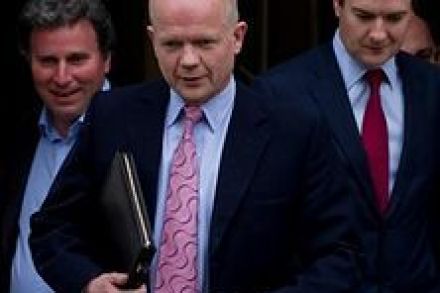No Lib-Con deal for at least 24 hours
William Hague has just emerged from the Cabinet Office and spoken of the ‘positive, constructive and substantive talks’ between the Conservatives and the Liberal Democrats. Discussion has encompassed political reform, reducing the deficit, banking reform, regulation of small businesses, environmental issues and civil liberties. Hague says that a further meeting will take place at some stage in the next 24 hours. ‘That meeting,’ he added. ‘Will concentrate on deficit reduction and economic stability’. The language of the statement suggests that an informal pact is more likely than a formal coalition. It is surely indicative that the follow-up talks aim to secure economic stability in the interests of the country, rather

















